The Anime Dub Controversy
The debate over subbing vs. dubbing is arguably one of the most contentious in the anime community. For some anime fans, the only way to watch a Japanese anime is to watch it in the original Japanese, with subtitles for those who do not speak Japanese fluently. Others would rather watch their anime dubbed into English, with an all-new English voice cast and crew delivering all the lines. People who hold the former view generally contend that watching a show in Japanese, even if it is subtitled, is a more authentic experience, that allows for more Japanese cultural resonances to reach the audience than watching the same show in English would be. Not everyone agrees, however, particularly in the modern age when dubs are more faithful to the source material.
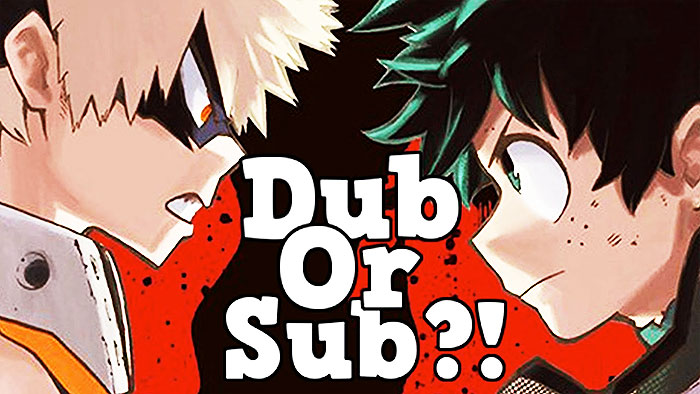
A background on English dubs
English dubs of anime are made via a process known as automatic dialogue replacement, or “ADR.” 1 In ADR, the voice actor is placed in a recording booth, where they watch a clip from a show and record themselves acting out the script that goes with the clip. A similar technique is used in Hollywood to allow live-action actors to re-record lines. According to Anime News Network 2, the casting process for a modern dub is as follows:
When a new show is about to be dubbed, the person in charge of casting goes through whatever materials are available–either the show itself, or if it isn’t available yet, any and all promo material that’s been made at that point. They write a casting break-down: a list of characters each with a few notes about them and what they sound like, and their general attitude and feel. They note the gender, how old or young they sound, and anything else that they can think of that might help them cast the role. Most of the time, a couple of established voice actor names will spring to mind for at least a few of the roles.
Ideally at this point, there will be time and money to do a full casting call. The actors that immediately sprang to mind will be invited, of course, as will a handful of others from the pool of ready and able talent that all dub studios keep on hand for such things. The voice actors come in, one at a time (not all at once, like in Japan), and read a few lines for several characters […]. Then the director and whoever is paying for the dub sit down, listen to the auditions, and figure out who should play what role.
In addition to the voice actors themselves, a successful English dub relies on scriptwriters to translate the original Japanese script into English, and directors to ensure the voicework sounds appropriate. Scriptwriters are usually provided with the original Japanese audio as well as any production and cultural notes, and adapt the script to suit an English-language audience based on the information available to them 3. Many scriptwriters and directors are also voice actors themselves.
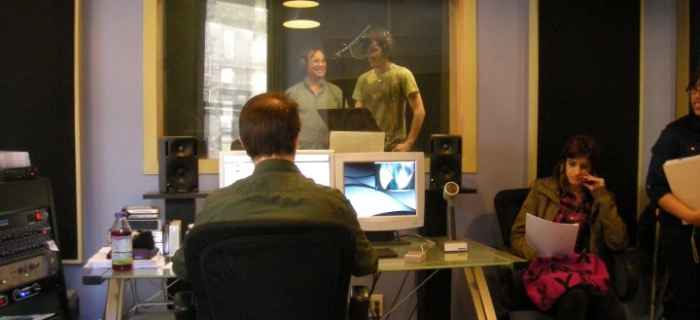
The earliest anime English dubs to be released came out in the mid-1960’s, and included such works as Astro Boy, Tetsujin 28 (known in English as Gigantor), and Kimba the White Lion. In the 1970’s, a bowdlerized version of Gatchaman, renamed Battle of the Planets, was released in the United States, as was a fairly faithful adaptation of Space Battleship Yamato (known in English as Star Blazers) 4. In 1992, the anime industry took root in Texas, when Matt Greenfield and John Ledford founded ADV Films in Houston 5. Among their first dubbing projects was a magical-girl series called Devil Hunter Yohko.
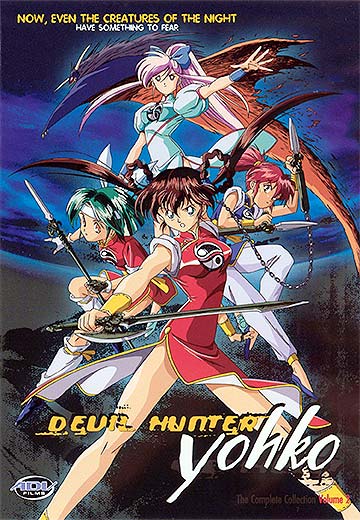
In the mid-1990’s, Funimation Entertainment, another Texas-based studio, licensed Dragon Ball Z, and began releasing English episodes in 1996 6. Along with the Sailor Moon and Pokemon anime series, Dragon Ball Z introduced a younger generation to the world of anime. Anime began to explode in popularity not long afterwards. Anime dubbing saw a major expansion throughout the early 2000’s, followed by a contraction around 2007-2008 as the industry shrank and Geneon, one of Japan’s anime production companies, collapsed 7. Since that time, Funimation has overtaken ADV as the largest producer of anime in the United States, and ADV survives as several smaller companies, including Sentai Filmworks.
Why English dubs are controversial
As prevalent as English dubs of anime have been over the years, they are not without controversy. Many anime fans, particularly older ones, really dislike English dubs, accusing them of being less faithful to the source material than watching the original Japanese audio with subtitles would be. What many of these arguments boil down to is that anime is a “Japanese” product, and that any attempt to adapt it for a Western audience somehow compromises its inherent “Japaneseness.”
Many English dubs, particularly for older shows, contained a lot of editing, in order to make them accessible to an English-language audience. Some of these dubs were infamous for altering or removing entire character arcs or plot points, as well as altering or removing names or cultural references in order to hide the fact that the anime was supposed to take place in Japan 8. Many anime fans justifiably see these sorts of changes as culturally insensitive and insulting to their intelligence. On the other hand, some infamous changes were specifically requested by the Japanese creators, in order to expand a show’s marketability. In the case of Dragon Ball Z, for example, Funimation was told to make whatever changes were necessary to allow the series to be aired on television, even if it meant producing a bowdlerized version of the source material 9. Modern dubs rarely contain such extensive editing, preferring to stick as closely as possible to the source material.
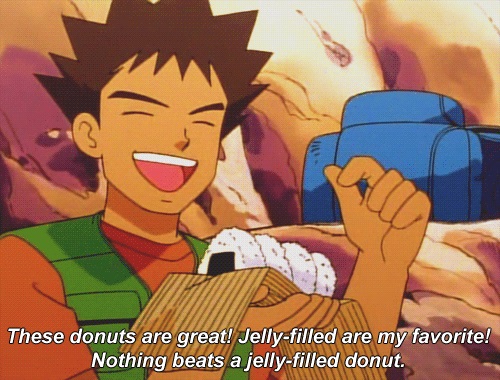
Another common argument is that the vast linguistic and cultural divide between Japan and the English-speaking world means that no English script can ever properly capture the spirit of the original, even if no edits are made. This argument often manifests itself in complaints about pronunciation of Japanese names in English dubs. In fact, many anime voice actors probably could pronounce Japanese names accurately if they really wanted to, especially those who have been voice acting for a long time or already had an interest in Japanese culture before becoming voice actors. The risk, however, is that a traditionally Japanese pronunciation of a name would make the overall flow of the dub sound more artificial, by introducing something that’s clearly Japanese into a script that’s otherwise entirely in English.
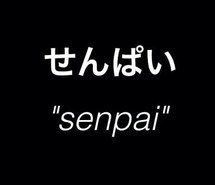
A related argument is that an English dub couldn’t include specific Japanese cultural words or phrases. Some of these words and phrases include the different ways of saying “love” in Japanese, as well as titles and articles that convey rank, such as “senpai” and “-chan.” On the other hand, these cultural touchstones could easily go over the heads of English-speakers anyway unless they already know what the words mean or are willing to put in the effort to research them. English dub scriptwriters are aware of this and generally go to great lengths to preserve the meaning of the original Japanese while still presenting it in a way that an English-language audience can understand. To cite one example of this phenomenon, there’s a scene in the vampire horror anime Shiki in which a teenager named Masao attempts to pull rank on another teenager, Natsuno, by demanding Natsuno call him “senpai.” In the English dub, Masao does the same thing, but rather than use the word “senpai,” he simply demands that Natsuno not push him around because he’s older. This is an example of a dub job that conveys the meaning of the Japanese script, in a way that makes sense to the average English-speaking viewer.
A question of authenticity and accessibility
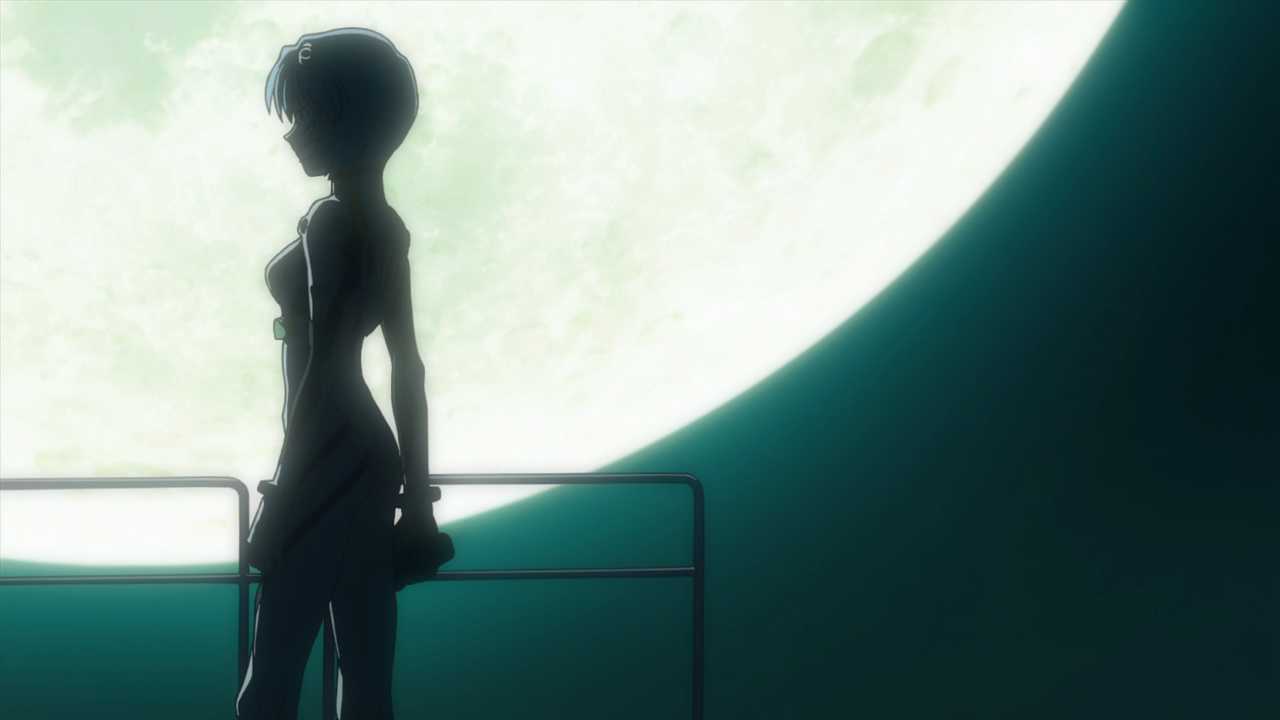
Ultimately, the fight over English dubs rests on the tension between a work’s authenticity and its accessibility. Intrinsic to the arguments against English dubs is that English-speakers who want to explore Japanese culture should prize authenticity above all else. According to this logic, English dubs will always be inferior because they are less authentic. Some fans who view anime this way may be willing to watch dubs, but only in cases where the dub is better than the original Japanese, or the anime is set in an English-speaking environment. Whether subtitles actually provide a more authentic cultural experience than an English dub is a matter of some debate. For instance, in the new Netflix screening of Neon Genesis Evangelion, both the subtitles and the dub altered the relationship between Kaoru and Shinji to have fewer homoerotic overtones, meaning that people who watched the subtitles would not necessarily get the authentic experience of the original anyway. Along similar lines, many fans of the Deadman Wonderland anime were offended when the dub removed a line from Genkaku, the leader of the secret police, telling Nagi, the leader of the resistance, that he “loved” him. However, the English version of the line, in which Genkaku tells Nagi he “liked [him] so much better crazy,” and calls him a “stupid sh-t spouting crap about risking life,” sounds much more like something a real person would actually say. Homoerotic subtext between the two men can still be found in the dub, via asides where Genkaku calls Nagi “love,” “lovebird,” and “sweetheart.” Which version is actually more like the original Japanese is impossible to tell without a grounding in the Japanese language.
Because translating one language to another in any format is fraught, some fans suggest the only truly authentic way to experience anime is to watch it raw, exactly the way that a Japanese person would. Even the very act of reading an animated program, which was designed to be experienced through art and sound, strikes some people as suspect. However, the people who know enough Japanese to watch the raw footage generally don’t need subtitles in the first place.
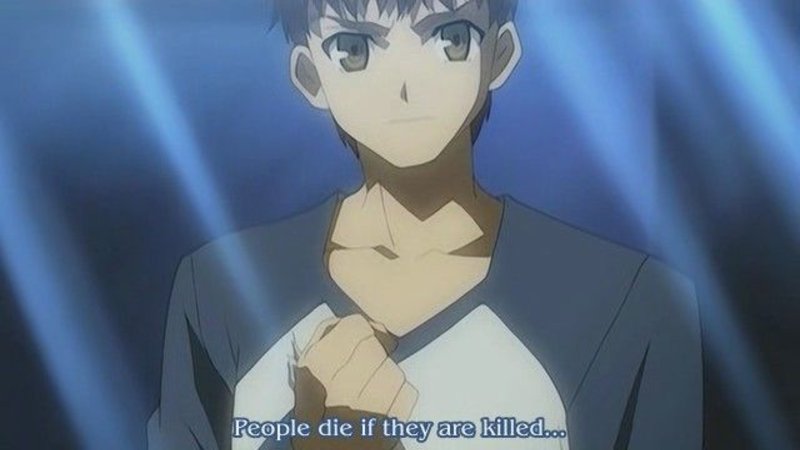
On the flip side, fans of English dubs generally want their entertainment as accessible as possible. Accessibility doesn’t have to entail extensive editing or removal of cultural references. Fans of English dubs claim that they enjoy themselves more, and connect with characters in a show more, if those characters are speaking the language they are most familiar with, regardless of the actual content of the anime. There may even be an evolutionary basis to this preference, as humans seem programmed from birth to prefer things they perceive as more similar to themselves, including their native languages 10. Furthermore, English dubs, even if they’re not as good as the original Japanese, are often an American’s first exposure to anime, and possibly to Japanese culture as well. Chances are, most millennial anime fans became fans of anime in the first place after watching an English dub of a series like Pokemon, Sailor Moon, or Dragon Ball Z on television. Whether these dubs were objectively “good” (let alone better than the Japanese versions) was, at the time, beside the point.
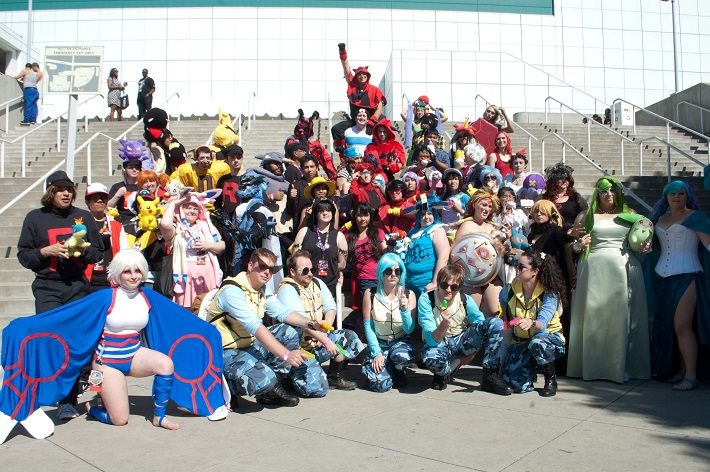
People admire Japanese culture for many reasons, whether for its art, architecture, music, history, cuisine, nature, or contributions to popular culture. Some fans draw a clear distinction between the culture of Japan and that of the United States–Japanese anime in this box, and American cartoons in another. These people may prefer to watch their anime in Japanese, subtitled if they do not speak the language, in order to feel like they’re experiencing a slice of authentic Japan. By contrast, other fans prefer to be completely immersed in the world of an anime and the lives of its characters just as they would for a Western cartoon, even if it means watching the show in a language that the characters would not normally be speaking. These fans may still want to learn the Japanese language and specific Japanese cultural artifacts, but they do so through other means. Either is a valid means of experiencing Japanese popular culture, and either can lead to a better appreciation of Japanese culture more generally.
There are many reasons for the controversy surrounding English dubs of anime. To certain anime fans, English dubs make too many edits to the source material, fail to properly capture the Japanese cultural consciousness, and simply cannot be authentically Japanese. On the flip side, many other fans feel that complete immersion in an anime’s world, provided by a dedicated English cast and crew, provides the most pleasurable viewing experience. Nowadays, anime fans have more options for how to watch their anime than ever before, and fans who watch English dub series no longer have to worry about excessive editing or censorship. In this day and age, there is no objectively superior method for watching anime, and no more authentic method than to watch it as a Japanese fan would, with no subtitles or translations whatsoever. For the Western anime fan who does not speak Japanese, the choice of whether to watch an anime in Japanese with subtitles, or dubbed into English, is a very personal decision.
Works Cited
- Cowdog. ADR: Hollywood Dialogue Recording Secrets. CreativeCow.net. Retrieved from library.creativecow.net/article.php?author_folder=cowdog&article_folder=ADR&page=1, 24 June 2019 ↩
- Sevakis, Justin. “How Are English Dub Voice Actors Cast?” Anime News Network, 2015. Retrieved from www.animenewsnetwork.com/answerman/2015-09-11/.92806, 24 June 2019 ↩
- Yegulalp, Serdar. “The Anime Dubbing Process.” LiveAbout.com, 2019. Retrieved from www.liveabout.com/anime-dubbing-process-144981, 24 June 2019 ↩
- RightStuf. “History of Anime in the US.” RightStuf. Retrieved from www.rightstufanime.com/anime-resources-history-of-anime-in-the-us, 24June 2019 ↩
- Blakinger, Keri. “Japanese cartoons, Texas voices: The story behind the rise of the anime dubbing industry. Houston Chronicle, 2019. Retrieved from www.houstonchronicle.com/news/houston-texas/houston/article/Japanese-cartoons-Texas-voices-The-story-behind-13530664.php, 24 June 2019 ↩
- Alverson, Brigid. “20 Years Ago, Dragon Ball Z Came to America to Stay.” CBR.com, 2016. Retrieved from www.cbr.com/20-years-ago-dragon-ball-z-came-to-america-to-stay/, 24 June 2019 ↩
- “Sogen Con 2007 – fansubs panel(1).” YouTube, uploaded by ZZalapski, 3 November 2007, www.youtube.com/watch?v=cV0b8bEaT4I ↩
- Brackett, Crystal. “15 English Anime Dubs That Made Drastic Changes to Anime.” Ranker. Retrieved from www.ranker.com/list/english-anime-dubs-that-made-big-changes/crystal-brackett, 24 June 2019 ↩
- “Sogen Con 2007 – fansubs panel(6).” YouTube, uploaded by ZZalapski, 3 November 2007, www.youtube.com/watch?v=LP_PHLE3rYw ↩
- Bloom, Paul. Just Babies: The Origins of Good and Evil. Crown, 2013 ↩
What do you think? Leave a comment.




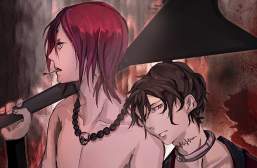


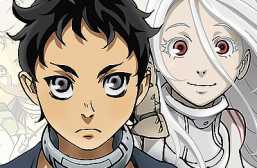

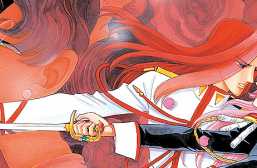

Amazing article.
I feel that many native English speakers say that Japanese voice actors are better, because they can’t understand the Japanese language and point out awkward lines. You really can’t critique voice acting in a language that you don’t understand, because every language has different ideals for good voice acting. The only voice acting that I can actually critique are English, Dutch, and German, not Japanese. I can point out when a line is awkward in these three languages, but it’s incredibly hard to do so in Japanese, unless the character is speaking in butchered English.
I think that anime in general has problems with voice acting on both sides of the world. In Japan, while there are many more actors, many of them sound the same. I don’t need to speak Japanese to notice this. In English, the same issue is applied. For example, in Dragon Ball Z, Chris Sabat has voiced Vegeta, Zarbon, Jeice, Burter, Yamcha, Piccolo, and probably someone else I don’t know.
Another problem with Japanese voice acting is how male characters tend to sound MUCH younger than they should be. Goku in Japanese is a great example. The problem doesn’t come from the fact that he’s voiced by a woman. The problem stems from the fact that the woman can’t sound like a man. Even if it’s a cartoon, DBZ has somewhat realistic character designs, so many (including myself) expect Goku, who is an adult with big muscles, to sound like an adult man. There’s also Krillin from DBZ being voiced by a woman, expect she isn’t even trying to hide her voice. It’s jarring.
English voice acting suffers from some actors sounding bored, but there is somewhat of a reason for it. Here in America, when we see realistically drawn cartoons, we generally expect the characters to sound natural (as in realistic). We wouldn’t want Batman in The Killing Joke to sound unnatural, because that would draw many of us out of the story. Animes tend to look more realistic than the standard cartoon here. In Japan, actors don’t always talk as they would within a normal conversation. Many times, they’ll exaggerate their lines, but that’s natural to the Japanese. Here in America, that can easily come of as overacting, which is generally frowned upon.
I don’t have a preference. It really depends on the show or movie for me.
All good points. I also feel like there’s a bit of a “damned-if-you-do, damned-if-you-don’t” attitude toward some of the voices English VA’s make. For instance, sometimes English voice actors intentionally try to overact or use a more cartoonish voice because that’s what people would expect from Japan, only for fans to accuse them of sounding stagey and fake. But if they try to use a more naturalistic tone people will complain because they don’t sound like the Japanese VA’s. So, if they can’t sound like natural English-speakers, and they can’t sound like the Japanese, what are they supposed to sound like?
a huge percentage of male characters in anime are actually children or teenagers, believe it or not. especially the stuff that becomes popular in america. teenage boys tend to be voiced by women because most men’s voices are too deep to portray convincing kids.
that and many characters who appear male are voiced by women ON PURPOSE to highlight their gender ambiguity (and vice versa) or for the humor. it’s meant to be jarring and it’s part of a character. these nuances are lost in english translation if this isn’t taken into account.
and bored american voice actors don’t sound more ‘natural’. they just sound bored. part of the problem is that for the longest time, dubs for anime productions were recorded with each actor in isolation. i guess because it was cheaper? i don’t know if this is still true. however, most anime productions (and big american animated productions/movies) are recorded with all the actors for a scene together, which actually makes the acting sound natural.
i do have a preference for subbed anime, but i’m not averse to dubs if they’re well done. usually i’ll watch both for a show i get into to see which i prefer. sometimes the english dubs are better-acted or funnier than the originals.
When you grow up in a smaller country like I did, most movies are subbed and not dubbed. Dubbed movies are only for very young children. When you have seen endless movies with subs you no longer feel that you are missing out visually. You kind of learn to register both the subtitles and the visuals at the same time. I think the problem for Americans are that you are simply not use to subtitles, but the more you watch the less you will realize that you are reading the subtitles. It’s so natural for me I even catch myself reading the subtitles when the movie is in my own language. Dub works when done right, I always really enjoyed the voice acting Akira for example.
Tokyo Ghoul and Assassination Classroom have pretty good dubs.
If you watch Live action movies dubbed, don’t even talk to me.
I’d rather focus on what’s going on than have my eyes glued to the bottom of the screen. If I knew Japanese, I’d watch it in that language.
I’m an only sub watcher and I can totally respect others preference for dubs. But the one argument that I can’t get past when it comes to dub being better than sub, is the “It’s too hard reading the subs while watching the animation at the same time” argument. I do not get this. Unless you have reading difficulties, I don’t get this being difficult at all. I mean have you at all seen an anime? Have you seen how still the animation in an anime actually is? They can have a character on screen talking for half a minute where only their mouth is moving up and down, and you’re trying to tell me you find it difficult to both read and watch at the same time, as if the animation is the most complicated framed anime ever.
I’m sorry but no. Just nope.
To me, this argument is just an excuse for being lazy about reading in general. I dare even say it’s “difficult”, both reading and watching at the same time because you don’t read enough to begin with.
I believe the only downside to dub is the natural feel is gone in some anime, and it feels awkward, usually because of the strong accent of other languages which don’t seem to fit the character. Everything else, such as emotion and script changing is not a problem, but is in fact a really good thing.
My opinion is, i prefer watching sub anime. But i don’t like dubbed anime when is new and latest release especially simuldub. Some good dubbed like Pokemon, Dragonball, Sailor Moon and many old anime are like it to watch.
I watch both dubbed and subbed anime and as long as it is well done (the dubbing or subtitles) then I don’t see a difference. Anytime you watch anything in a language you don’t know you will be faced with the same issues, and either option can be a viable solution as both subs and dubs have perks and draw backs. In the end, which ever method you choose, I think it’s good that more people are getting exposed to different media and can come together to enjoy an art form.
I feel it’s all rather subjective because typically subs vs. dubs goes on a case by case basis. Many times, yes, the sub is better because that’s what the mouths are animated to speak so it’s less awkward, the same thing applying to phrases as well. However, it all depends on a person’s preferences overall as well. Personally I don’t think one is better than the other because each has their own benefits and hindrances depending on which you prefer.
Great article, Debs. I was pleased to help in the editing stage and I’m happy to see this article now generating some very healthy debate. Well, you already know I’m a dedicated sub rather than dub fan, but I do have to admit that, in my opinion, the dubbed versions of Cowboy Bebop and The Melancholy of Haruhi Suzumiya (including the follow-up ‘Disappearance’ film) are fine examples of the dubbing craft. Having done a little ADR I can also attest to just how difficult it can be to match lip movements and maintain a good performance. Thanks for the great read.
I just can’t understand how people prefer sub, if that’s what you like more power to yah but I will never understand it. The Japanese voices are so annoying and all sound the same, the wording in the subtitles is so awkward and I’m not hearing all this supposed emotion that the sub is supposed to have so much more of.
Hi Daniel. I think it really comes down to one’s opinion. You dislike subs, whereas I prefer them – but then, as many here know already, I am also an amateur subtitler. I state ‘amateur’ as opposed to ‘fan’, because I follow professional guidelines. If my work goes unnoticed then I take that as a compliment, because the goal of any professional is to make their subs as invisible as possible. The problem you highlighted, i.e. ‘the wording in subtitles is so awkward’ sounds as if you’ve been reading poorly written subs, created by someone whose native language is neither Japanese or English, so they really have little or no idea what they’re writing. Now, your comment ‘The Japanese voices are so annoying and all sound the same’ comes across as superficial. I’m sure you wouldn’t wish Japanese to think all ‘western’ voices sound the same. Admittedly it does take a while to tune the ear to the nuances of speech in a non-western language, but the effort is worth it in the end. And that’s coming from someone who has tinnitus! 🙂
I usually go for dubs out of convenience. I like to play games and stuff while I watch TV, so having to look over and read every line is rough. I prefer subs if the show has 100% of my attention, but that’s almost never the case unless I’m on a train or something.
Thank you for the read. This controversy is one that encompasses not just Japanese anime, but all media and voice acting in the world, and it shouldn’t even be framed as “Subs vs Dubs”, it should be “Japanese vs Everything else”. See, English dub apologists do have one right idea: In general, the original version of something isn’t automatically the best one. After all, why must originality automatically equate to quality? Creators are not infallible in their ideas, and the very first versions of their works may not be optimal for what they’re really hoping to do. But the people who watch anime subbed are also absolutely right in that Japan is the greatest at the profession of voice acting. None can deny that Japan is by far the most committed and disciplined when it comes to voice acting, specifically. That means, when it comes to voice acting, it is not the “original” that’s better, it’s JAPANESE. Not only should Japanese anime never be dubbed in English, even entertainment media not originally made by Japan should all be dubbed in Japanese, and only Japanese. Anyone who actually thinks that the supremacy of Japanese voice acting stops at the stuff originally made by Japan is nearly as stupid as people who prefer English dubs all the time.
These days, too many people think that liking English voice acting, or any other non-Japanese voice acting, can be defended by calling it “just an opinion/preference”. Well, guess what else technically counts as just a preference? Wanting to have sex with children, or animals, instead of adult humans. Pedophilia and bestiality are proof that calling something a preference is NOT a valid defense. Now, what’s that, you say? Liking English voice acting doesn’t harm other people? Allow me to disabuse you of that notion then. If we normalize the enjoyment of liking English voice acting despite the overwhelming superiority of Japanese voice acting, if we don’t establish proper, objective standards for art, then that will lead to the erosion of standards in practical jobs. Jobs that are essential for the health and safety of people, and the upkeep of society. Soon, people will begin to justify hiring incompetent doctors, engineers, lawyers, etc., because they can say “Well, they might not objectively be the best, but I like them”, and even claim that their incompetence is “subjective”, because their professions are arts, and art is subjective. And if you thought tolerating bad artists is an issue, guess what happens when you get bad practitioners of other jobs? Rampant medical malpractice and miscarriages of justice. Catastrophic failures of vital systems as a result of shoddy engineering. People are actually going to die in mass numbers. All because people today think that watching English dubs is a harmless preference. Well, I hope they can live with themselves, with the blood of our children and our children’s children on their hands. In fact, English dub lovers are likely to be even worse than the likes of child molesters and animal fuckers, because rather than traumatize a few of our descendants, they are dooming them en masse.
The only reason anyone could possibly like or defend English voice acting is due to either conceitedness or insecurity. It depends on, whether they truly believe it in their heart of hearts, that they must be useful for every field. They fail to realize that that’s not the way the world works. All people must, to some extent, know their own place and accept that some things in the world simply aren’t for them. For all people outside Japan, that is what voice acting is. The Japanese have thoroughly beaten everyone else in the world in the field of voice acting. The contest is over; the result is clear. There is nothing left for the non-Japanese of the world but to accept their worthlessness at voice acting, and bow out of the field entirely with as much dignity as they can muster. Now, does anyone actually want English voice acting to continue to exist at all, because they’re actually holding out hope that it can become better? That is wishful thinking. After all, is Japan going to stagnate and not continue to improve at that craft themselves? There is no hope for any other country to catch up and make themselves useful in that field compared to Japan. If they remain in the field of voice acting any longer, they will do nothing but drag the whole field down and impede Japan from sharing its gift for voice acting with the world. And, of course, the inevitable result of this will be the apocalyptic scenario I have described above. Therefore, the only right thing to do is to completely and permanently close the doors of voice acting to every country in the world other than Japan. It is the moral duty of all the non-Japanese of the world to let go of their desire to hear their own language in entertainment, and take solace in knowing that, by shouldering the burden of using subs over dubs with grace, they are sparing their children and children’s children from death and destruction.
I prefer dubs, the majority of Japanese VAs don’t do it for me, I can’t stand men that sound like tween boys (I know female VAs play male characters). A prime example of what I mean is Goku in DBZ, I mean no disrespect to the incredible talent of Masako Nozawa but all the action scenes I’ve seen here and there are all underwhelming because of the high pitched voice he has. To each their own, I just wish more games got the English dub like the Anime.
I am Dutch, I have no problem with watching sub in general because we barely dub movies or shows. I sometimes prefer the dubbed version of an anime, because the quality in the emotions is just as good. Fullmetal Alchemist for example. But I prefer to watch sub, sometimes dub when I am not in the mood to read subtitles. I mean, I’m not German or English, I’m Dutch….we dislike dubbed shows, except if it is a cartoon or youth film.
Fullmetal alchemist is a good dubbed anime, even though I prefer the sub the dub isn’t too bad either
I only watch anime with sub if its new or not released with dub. I want to focus on the scenes especially in action animes. And if a new anime i liked gets a dub, i will probably watch it again. And of course if a anime gets censored in the west, i prefer to watch the original.
If the anime is has shown promise and continues with good content like fast paced action etc. I will watch some of it in jap sub if the dub does not exist. But i too am impatient and i multitask while watching everything. Dub looses my attention “tenjho tenge” while i rewatched in dub and realized how much i actually missed. Both are good. Sub and dub.
I watch both sub and dub but mostly dub. I don’t really care if dub sounds cringy or not, as long as I can enjoy the show.
Love how it turned out. I recently read an article on Vox (I think) about how the English dubs produced by Funimation are mostly a product of circumstance. Rather than doing nation-wide casting calls for the best voice actors possible, they used to simply grab actors located in the general vicinity of their Texas studio–many of which had little, if any, voice acting experience–and threw them a script. I’m not sure if this is still common practice, but it’s no surprise then that VA’s might not be best prepped to understand cultural nuance and pronunciation of Japanese names.
Overall, though, I think you make a great point about dubs, nostalgia, and the anime craze of the 2000s. I watched an episode of Bleach the other day and I was like, why does this feel off? I realized it wasn’t dubbed, and I subconsciously associate Johnny Yong Bosch with Ichigo.
Actually, my point is that the English voice cast and crew probably do understand Japanese cultural nuance, for the most part (at least as it pertains to any particular show). The problem is that they have to market their product to an American audience that might not understand as well as they do.
That’s probably true in more recent years. Since anime has become more popular and commonplace, American dub VA’s have become much more experienced and celebrated. I didn’t mean to counter your point, just that it’s interesting to speculate about the casting process in the early early days of American dubs. Voice acting is difficult and they truly have to work hard to please audiences…I’m glad they’re getting the recognition they deserve!
I like both equally. And while I tend to watch more subs due to availability, I’d prefer to watch a quality dub over sub and broadcast dubs have really helped with this. But I really feel like you shouldn’t just choose one over the other.
Some series are far superior dubbed and English reflects the series’ content better. Just like how there are subs that are too Japanese to really work in English. Then sometimes none of that matters and it comes down to the performance or the script. Your personal preference for how you want to experience the show shouldn’t limit yourself to either.
When I watch a sub, I just can’t get into the voices when they aren’t English. It’s kinda like listening to white noise for me. My mind blocks out their voices and I just focus on the subs.
Emotion makes the anime. there’s too many deadpan deliveries in English. I once tried watching the English version of one of my favourite anime back in high school (more than 10 years ago now), and….it sucked. I had been hoping for a good Dub so I didn’t have to download Fansubs of Bleach every week. These days I just watch Anime on Crunchyroll =P And to those who say that Anime voices are better in Japanese, I mostly agree…until you hear Pegasus’ voice in English, and Japanese. XD
English Pegasus: https://www.youtube.com/watch?v=HvsYNGPEcAw
Japanese Pegasus: https://www.youtube.com/watch?v=CWQqDrmNrNA (Sorry there’s no straight clips of just the Pegasus Voice Actor speaking as Pegasus)
In my opinion dubbed is better because I’m a slow reader so it’s hard for me to read the lines quickly and dubbed its much more easier…
Me personally I can watch both sub and dub. Before, I never gave sub a chance but then I just decided to watch Saint Seiya and I got used to hearing Japanese. I watched the whole of Fate/stay night ubw in sub twice before I bought the blu-rays and I’m glad I did cause it gave me an appreciation of the Japanese va’s which I wouldn’t have had otherwise and I also went back and watched Fate/Zero in sub after watching the dub. Now on the topic of subs vs dubs, I think most dubs I’ve heard recently are fine I mean they haven’t made me want to rip my ears off (apart from AICO but that’s a whole other kettle of fish) so that’s good lol but I think dubs are especially suited to anime not set in Japan like Baccano, Hellsing, Blood Blockade Battlefront, JoJo’s bizarre adventure and Black Butler. It makes more sense for characters in those series to speaking English since their respective stories take place in English speaking settings.
I’m thinking about switching from subbed to dubbed because I feel like I’m spending too much time looking at subtitles than watching the anime, because I normally don’t remember any anime I watch, but at the same time I love how subbed sounds (I know I’m a mega weeb, but this is a crisis for me)
Cool article, it actually informed me a lot about the dubbing process which I wasn’t aware of, I’d honestly read a whole seperate piece that goes into that in more depth. Still got a few dubs I cling to dearly, but definitely shifting more to subs, more so after reading about the subtler cultural changes here.
I definitely think that sub is better, because it is was how it was originally aired in Japan, but I watch the dubbed versions of anime anyway because I’m more attached to it. Everything I watched on Toonami and Adult Swim was in English, so I just felt the same way when it came to watching anime online. It just depends on the individual. Both of them have their advantages and disadvantages. If you prefer sub over dub, then that is fine, but for the most part I watch the English versions because that was how I was accustomed.
I liked the really neutral way you approached it in this article since the sub vs dub debate can get really heated. When I started watching anime, I watched it dubbed on tv or ripped DVDs, but I got tired of waiting for the dubs and switched to subs. I didn’t find the change bothersome at all, even though I was mainly watching shounen action (Naruto and Bleah mostly). I think part of it comes down to age. I was only 12 when I started watching subbed anime, but my husband only got into it in his twenties, and he finds the reading and watching too difficult, while I don’t even have to try to read them. I actually will watch English movies with the subs on now because it feels more natural to me, and I like the comfort of knowing exactly what they are saying.
I just can’t focus when i have to read what they’re saying and not hear it.
I more or less like to compare the anime’s sub and dub, if both are good then I’ll watch both. If one dub majorly cuts content that was in the sub something like the original Yu-Gi-Oh! where it slowly loses its composition then I’d rather watch the sub since it somehow maintains the story within. Since it’s the original then it wouldn’t be modified. But if the dub is just as good as the sub, I concur watching the dub is just as good if it is able to maintain that sweet sweet cohesion.
Howl’s moving castle has the best english dub for me
I kind of think of this issue as a “book vs. movie adaptation” kind of ordeal. You can’t get everything from the sub into the dub and therefore the fans who stick to the original sub aren’t happy. It makes sense. I’ll watch sub if there is not dub available or the sub is out first, but I prefer dub because that’s how I watch shows originally made in English.
I like subbed because when an emotional scene comes forward they actually add more emotions like their the ones going through what’s going on. Plus I love how they sound. I like dubbed because it’s some anime where the dubbed version gives some characters voices that fit them (Ex: Goku Dragon Ball Z)
Story time. I started watching anime with literally no sound. My first anime were Naruto and AOT, and both of them I started watching on a mute iPod (broken af lol), and at school when the teacher starting droning, so subbed was the only option atm. But, after rewatching some Naruto with sound, especially things like the Pain scene, I realized quickly the value of both the voice acting and music of each frame. Initially, I had either watched an entire anime silently, or I would play a small interval of a character speaking, and whilst reading the subs, I would read it in their voice, in my head. The same thing sometimes happens if you ever imagine changing characters whilst reading a book (ie, elderly wizard to small boy).
I first tried to listen to the dubbed version of AOT, and immediately, I realized two things: Armin, who was already annoying in Japanese, was whining even more lol, and Eren either sounded too high pitched (probs cuz I was used to the og voice) or screamed too often. It was probably a case of whoever watched either version first, as I have seen in my brother’s case of watching the dubbed first, and he ended up liking both versions, whereas I was polarized. Instantly, I had a premonition of subbed>dubbed, because I would later watch both Naruto and SAO. SAO was disappointing to say the least, but when I gave the dubbed version a try, Bryce destroyed that experience even further imo. Though he is an alright VA, the majority of what I heard made it sound like a rushed project, or half-assed attempt at voicing a somewhat deep and mature character.
Naruto, on the other hand, was amazing when it came to Kakashi, Sasuke, Jiraiya, and some others, but as for the titular ninja and Sakura, I couldn’t keep listening without cringing. True, Naruto was already a whiny brat in both versions, but the English dub not only added the unnecessary “believe it” (which really isn’t the translation, dattebayo is just a verbal tic he has), but also a sense that the VA was reading a passage aloud rather than actually acting. I understand it is certainy hard for an older lady to try and voice a spritely young ninja, but I feel like it would have been a better option to have had a deeper, boyish sounding male voice the part, rather than simply hiring one for the same pitch. Sakura’s was the same as Kirito’s, it just sounded very half-assed, and an already annoying character was made worse.
But for all this, I realized how wrong I was when I accidentally watched the dubbed version of Fate/Zero. It was almost a Eureka-like moment, and I never watched a single anime without trying out versions. Fate/Zero, Fate/Night, Cowboy Bepop, FMA Brotherhood, and Code Geass will forever remain the best dubbed I’ve ever seen. Boku no Hero comes close, but as of now, any anime I see dubbed, (and this is a bit judgement Ik) I hold them to that standard of actual effort. For the sake of simply matching pitches, typecasting, or just trying to release a dubbed version asap, dubbed works shouldn’t be so “nerfed” or toned down in quality. Clearly there are amazing dubs, all it takes is giving them a chance, and a good VA cast.
I still don’t really understand the argument for saying it takes too long or it pulls away the attention to the scene when reading subs. I can say this because I’ve never once had to pause a scene and rewatch it just cause the subs were there. What I found occurs in most anime is that if there is a particularly long amount of words/sentences in a scene, there’s not much going on at all in the scene itself aside from mouth flaps. And if it is an action filled scene, usually they’re (the subs) either groans, repetitive sound effects, etc., nothing so important to REALLY pay attention to. It may be that I’m just a faster-than-average reader, and I used to be an avid reader as a child, but honestly, it shouldn’t be as much as a problem as some make it out to be.
I can understand some people’s discomfort with the Japanese cast, especially in cases like Goku being voiced by an elderly Japanese woman squeaking away, or the generic small girl talking in the same voices as all the other girls. It’s just as cringey as some dubbed actors I’ve listened to, but the same argument I make for dubbed exists against it. If it breaks immersion or is simply unchanging despite ongoing episodes, I’d watch the other option. If it sucks in both versions (Armin) F it, I’m watching subbed unless dubbed is extraordinary otherwise. The argument, however, that I am a weeb or a know-it-all for preferring subbed when I say it legitimately sounds better to my ears than the dubbed is just plain stupid. Should I call others racists for being intolerant to Japanese voices? It’s impractical to do so! (Not saying you said this in the video, just addressing it) Like in my brother’s case and my case of AOT, I simply liked the way the VA’s did their parts in the subbed version than the dubbed, and it just sounded like what I thought they’d sound like. When I was watching those episodes muted, for example, I would literally voice their parts based on what they looked like they’d sound like in my head, and when I finally watched subbed vs dubbed, I simply preferred based on the similarity to what I thought they’d sound like.
Anyway, great job with this article. I will be tracking this GREAT publication for more posts by you.
i started out watching anime dubbed, because this is what was readily available when i was a kid. teknoman, cardcaptor sakura, pokemon, vision of escaflowne, etc. once my college’s anime club turned me on to subs, i never looked back and lost much of my affinity to dubbed anime.
typically children actually sound like children in the original japanese, not constipated or shrill adults, and japanese VA performances tend to sound far less staged (given the norm there is to direct actors for a scene together instead of separately? one can hear the actors’ chemistry). voice acting in japan is a huge and respected industry; enough so that there are many, many different actors and an immense range of voices to pick from. in the US, the same thirty people voice every anime series. i’m also not a fan of mispronounced japanese names in english dubs. the biggest argument against pronouncing names correctly seems to be that english speakers find sudden dips into the japanese sound inventory distracting, but, like, just use american english sounds and keep the correct syllable accents. am i asking too much?
that said, i have never been a sub-only anime fan. for any show i really enjoy i’ll watch in the original japanese and then in english dub to see which i like best. because of the above, subs usually win out for me. but there have been so many examples of good-to-great english dubs (cowboy bebop, hellsing, both dubs for neon genesis evangelion, almost any studio ghibli work) or english dubs that are more enjoyable than the originals (dead leaves? teknoman/tekkaman blade? OMG) that i can’t discount dubs entirely.
i didn’t really understand dub-only watcher complaints about subtitles being distracting until i began studying japanese in earnest. they make mental processing of japanese words far more difficult: when i turn them off, it’s easier to hear more of what is being said. i recently learned subtitles also present problems for slower readers — i am not one in my native tongue, but i’m slow in japanese and can’t read the subtitles fast enough before they disappear.
Not everything gets dubbed. If you’re a diehard dub only, I think you’re limiting yourself. Some dubs are limited with the dialogue. They have to match the mouth flaps with dialogue and that can lead to slightly different story details.
One of the reasons I prefer watching dubbed anime is that, as a native English speaker, it sounds more natural. English and Japanese are two languages that do NOT fit cleanly together, which can result in dialogue that sounds extremely unnatural for an average English speaker when directly translated. That’s why dub scripts tend to be written twice; the initial translation, then re-wording things to sound more natural. I don’t like the dub for SAO (well the dub and most other things about SAO) not because of the voice acting, but mostly because the dialogue is clearly too much like the Japanese version – far too formal and eloquent. As long as the original sentiment and general tone is the same, then it doesn’t matter if the diolouge is changed. If fact, it’s more often than not an improvement.
I agree and this ties nicely into my point that subtitles aren’t necessarily a more authentic experience, because they often don’t sound much like something a real person would actually say. The only way to get out of this dilemma altogether is to watch the series raw, like a Japanese person would. But if you know enough Japanese to do that, you don’t need subtitles in the first place.
Also japanese voice actors sound basically the same almost. (very few unique voice differences) Also try SAO abridged it’s actually good unlike the original lol
Yu yu hakusho has provably the best dub out there.
A lot of the dubs I’ve heard just sound so unnatural to me for some reason. It’s like they’re talking really quickly, and they pause in strange places while speaking. I get that it’s because they have to match the lip flaps and keep up with the animation, but it really ruins my immersion in a show. I find it hard to criticize the sub mostly because I’m not as familiar with the language, so it’s more difficult for me to tell when something is poorly acted or done oddly. The only dubs I prefer would have to be DB/DBZ/DBS and Cowboy Bebop, though I am willing to watch Death Note and FMAB dubbed if I have to.
I watch far more subs than dubs, but there is the occasional dub/sub I can swap between without it being too jarring (Evangelion, Panty and Stocking, Cowboy Bebop, Space Dandy). And then there’s Black Lagoon, whose dub is far superior solely because of Maryke Hendrikse as Revy.
I loved reading this article.
As a dub watcher, I’m often made to feel (mostly by sub watchers) like I’m committing some great crime by watching an anime in English. I didn’t realise that when I caught an episode of Naruto on TV in 2009 that I was going to be viewed by a whole population of anime watchers as a non-legitimate fan. I appreciate the connection made between accessibility and authenticity and the comment that the first does not necessarily tamper with the other.
What a thorough article! This was very interesting to read. Since I (regretfully) don’t watch a lot of anime, I feel I’ve learned a lot from this. Thank you for sharing!
I love this article! I used to watch a lot of anime and tended toward the dubs when I was younger, but I did find that I preferred reading subtitles (especially when some animes had really awful dubbing). I will watch some animes in English, like Death Note and FullMetal Alchemist, mostly because I genuinely like the English voice acting and don’t feel like the story is changed for localization.
Dubs and Subs are good for anime in general. Gives viewers different interpretations in the voice acting. Subs will always be preferred for me, but dubs for shows like FMA Brotherhood and Attack on Titan are really good in my opinion and adds a new experience when watching.
Honestly, this shouldn’t even be a debate. They’re both good in their own ways and people should just let others have their preferences. Neither is technically 100% “authentic” anyway; both subtitles and dubs are effectively just loose translations. Not to mention a) some things don’t directly translate, and b) cultural differences give the need for differences in wording. As a primarily visual person myself, I prefer subtitles, but I actually like having the English dub playing in tandem as well.
Well written article
Thank you for the great article!
Subs vs. Dubs has been a great debate, even in my friend group, for many years. I think it really just comes down to one’s preference. I usually watch my anime or any other form of media subbed if I don’t understand the language. It makes it harder, and some of the phrasing might be odd, but I feel like I might be getting more of a direct translation than a dubbed version where they have a few more restrictions, like timing and lip syncing (which is not always taken into account by dubbing companies because sometimes it just really isn’t possible.)
However, on that same argument, there are some great English voice actors that have give amazing performances. I’ve been more than happy to listen to dubbed anime, it’s just not what I prefer.
I find the argument for authenticity to be compelling (especially as someone who mostly watches subs) but I wonder if striving for authenticity can hinder entertainment. For instance, in the still from the Pokemon episode, many american children would not have understood a conversation about rice balls, and thus would have lost interest. Is that a compromise worth making?
I love this.
I used to just watch the mainstream anime on Cartoon Network as a kid which were obviously English dubbed, and was never bothered by the “authenticity” of the story. However, I do find that the controversy between English dub and English sub is very relevant with certain animes.
Certain tropes within anime like the cute girl or the young determined boy I feel cannot really be accurately portrayed with English voice actors. Maybe this is because voice actors in Japan go through a more rigorous training process, and are highly skilled in altering their voice so that it fits a specific role.
So I’m sure someone else has probably brought this up, but after having skimmed the comments I didn’t see it. One of the reasons I prefer subs to dubs revolves around the issue or synchronicity – it legitimately bothers me when the words coming out of a person’s mouth don’t match up with the movements the mouth is making – its not so much a matter of authenticity for me (although I do think that’s a valid argument for the pro-sub camp) as it is a matter of the aesthetic experience. Of course, one could make the same argument against subtitles, claiming that they distract from the aesthetic cohesiveness, although again I find myself standing with the “you’ll get used to it/it’s just a matter of being a good reader” people.
Regardless, I still think its interesting that both sides seem to revolve around this kind of need for a smooth viewing experience – it’s just that what constitutes a fluid experience differs between people.
The irony is, my understanding is that (at least nowadays) the English dub staff actually try harder to match lip flaps than the Japanese. I was at a panel with some English voice directors who complained that a lot of the time the Japanese wouldn’t even bother to make the lips match the dialogue.
As long as dubs like Chuunibyou continued to be produced, this sub vs dub debate will never came to an end
I personally don’t care. If there is a dub actor that I like (such as Crispin Freeman), then I try to look for the dub. If I can’t, then the sub is okay. It can be distracting looking at the subtitles at times, but I like listening to the Japanese. In fact, most of the few words I know come from the anime that I’ve watched. (And most of the anime I have seen have been subbed.)
Also, for anime with lots of swearing like Black Lagoon, subs is definitely recommended (if swearing is not your thing).
while dub has a special place, Sub tends to be better , I’ve noticed the literal telling of the story is different in that charters will say very different things in sub vs dub which ultimately does change the story , its essentially being told from 2 different points of view and the original is closer to the sauce ergo just a bit better
I actually prefer the subs because I enjoy reading the translation. It allows me to compare the Japanese to how the translators are interpreting the Japanese, and sometimes, see where the translation could be improved.
I’m a subs kind of person, but both have their merit. Sometimes, though, when talking about an anime with a friend who watches dub, we’ll notice differences in how we interpret certain characters. The way a character talks and uses language says a lot about their personality, and a well done dub finds ways to capture the personality using an entirely different language. It’s no easy task, that’s for sure.
I’m ok with dubbed anime in general, but some are just unbearable. For example; “Grave of the Fireflies” such a good movie but you can’t ignore the terrible dubbing. Watching the subbed version made it much more enjoyable.
There are good dubbed anime out there like “Fairy Tail” where the dubbed is equally loved by the viewers.
I do not think that dubbing anime is an important part of making anime more accessible to western audiences. I have never heard of anyone giving up watching anime because they could not read subtitles. In the end, most english-speakers could adapt to reading subtitles in place of hearing english. I think the question is how to encourage our culture to resist the urge to assimilate everything to match our own initial habits/preferences.
I am definitely in the sub-camp here. And it is not even just for anime. I prefer subs when I watch any foreign movie too. Logical or not, I feel like I would never get the depth of the artistic work if I am not consuming it in its original form.
I have nothing against any way of watching anime: whether it be from dubbed, subbed, or original Japanese.
I personally started watching anime from the few selections at my local library, in which virtually all were dubbed. I owe dubbed my whole experience in anime, which has grown to appreciate subbed as well, and so I can’t think of it as inferior.
Worrying over which is the better way to appreciate anime ignores the goal of appreciating anime in my opinion.
My one way of leaning is that with the various subbed anime I’ve watched, I have been able to pick up a few Japanese phrases, which I enjoy immensely as I am always up to learn more!
This was a great read overall!
What subs people don’t realize is that a lot lf the time they’re not getting the original message either, and the reason they don’t realize it is because they don’t know the language. For example I’m a native spanish speaker that much rathers watching English movies with subs rather than dubs, but I can clearly see and notice the difference between what’s being said by the actors and what’s being written in the screen. Now that wouldn’t happen if I didn’t know how to speak english in the first place. Although I do agree that a lot of English dubbed anime is rather… Unemotional and disconnected from the work they’re doing. Spanish dubs however I find have much higher standards specially when it comes to translating emotions into their voices. Is not what they say, is how they say it.
Very interesting. Thanks for sharing!
I remember watching Bakugan Battle Brawlers on Cartoon Network ( first season aired 10-12 years ago, right? ) and didn’t even know that the original Japanese dub had the different opening and music score overall ( and some scrapped moments. Also sorry for my bad english, it’s not my native language. XD ) Back then it just felt naturally watching it like this. The thing is I’ve recently found original Japanese dub with english subs on Youtube and it surprised me somehow. Not the VA actually this time ( I still consider this anime as some kind of nostalgia-related guilty pleasure, because the plot, character development could have been so much better and the so-called ” it’s a kid-preteen oriented show ” excuse is not valid, because just a little bit more mature and deep doesn’t mean something controversial or gross. ), but the almost different music score and some scrapped from dub moments… Man, it felt just different, really. This whole childhood thing-related emotions. As for the dub vs sub thing… I think sometimes it’s really just personal preferences and sometimes I can really understand the issues with unique aspects of both languages but maaan, why do you have to change the music, scrap some key moments and also change the names ( the pronouncing-related thing ) of the characters and even change one’s gender? Maybe it’s all about the whole mainstream and cultural-political controversy thing which is obvious enough. I, for one, can watch both Dub and Sub ( currently watching Patlabor: The TV Series from 80-90’s and enjoy it a lot ), but if only the Dub isn’t some entirely scrapped version of the original one and once again, if the level of VA is somewhere between relevant and good.
I watch both and I can say that both have their pros and cons.
Thanks for this article! Super useful for my research, but also brought me back to the good old days, when I used to order fansub VHS of Sailor Moon because I hated the dub so much.
I personally prefer dub only so it’s easier to focus on what is going on, instead of reading subtitles and the anime itself at the same time. Though there is the factor that not every anime has itself a dubbed version of it. Then, I watch it in sub since a dub is not provided.
Then again, it also does depend on the quality of the dub
Interesting article. Today it makes very little difference in anime. Personally I enjoy both versions. It’s true a dub can never be 100% accurate but it’s very close these days.
Very interesting article. You’ve done a good job at succinctly explaining both sides of the debate.
Something I find interesting about the dub/sub discourse is that, while it’s often concentrated on anime because of the medium’s popularity, the same debates seem to happen on smaller scales for other forms of media. For example, many fans of the Korean show Squid Game criticised the English dub for altering the dialogue rather than directly translating it.